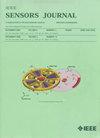MEMS谐振腔能量耗散机制的研究进展
IF 4.3
2区 综合性期刊
Q1 ENGINEERING, ELECTRICAL & ELECTRONIC
引用次数: 0
摘要
微机电系统(MEMS)谐振器是现代信息技术的基础部件,在惯性导航、精密传感和频率控制等应用中起着举足轻重的作用。这些谐振器的性能对系统级稳定性和可靠性至关重要,能量耗散是直接影响关键性能指标(包括频率稳定性和相位噪声)的最重要限制因素。本文综述了MEMS谐振器的能量耗散机制和阻尼抑制技术的最新进展。我们首先阐明了主要耗散机制的基本物理,包括空气阻尼、锚损失、热弹性阻尼(TED)和Akhiezer阻尼,以及它们的理论模型和产生原理。随后,我们批判性地研究了缓解这些阻尼效应的最先进策略。最后,讨论了当前面临的挑战和未来的研究方向。我们的工作为低损耗MEMS谐振器的设计提供了理论见解和实践方法,为提高下一代器件的质量因子和优化动态性能提供了有价值的指导。本文章由计算机程序翻译,如有差异,请以英文原文为准。
Research Progress on Energy Dissipation Mechanisms in MEMS Resonators: A Review
Micro-electromechanical system (MEMS) resonators are foundational components in modern information technology, playing pivotal roles in inertial navigation, precision sensing, and frequency control applications. The performance of these resonators critically governs system-level stability and reliability, with energy dissipation representing the most significant limiting factor that directly impacts key performance metrics, including frequency stability and phase noise. This article presents a comprehensive review of energy dissipation mechanisms in MEMS resonators and recent progress in damping suppression techniques. We first elucidate the underlying physics of major dissipation mechanisms, including air damping, anchor loss, thermoelastic damping (TED), and Akhiezer damping, along with their theoretical models and generation principles. Subsequently, we critically examine state-of-the-art strategies for mitigating these damping effects. Finally, we discuss remaining challenges and future research directions. Our work provides both theoretical insights and practical methodologies for the design of low-loss MEMS resonators, offering valuable guidance for enhancing quality factors and optimizing dynamic performance in next-generation devices.
求助全文
通过发布文献求助,成功后即可免费获取论文全文。
去求助
来源期刊

IEEE Sensors Journal
工程技术-工程:电子与电气
CiteScore
7.70
自引率
14.00%
发文量
2058
审稿时长
5.2 months
期刊介绍:
The fields of interest of the IEEE Sensors Journal are the theory, design , fabrication, manufacturing and applications of devices for sensing and transducing physical, chemical and biological phenomena, with emphasis on the electronics and physics aspect of sensors and integrated sensors-actuators. IEEE Sensors Journal deals with the following:
-Sensor Phenomenology, Modelling, and Evaluation
-Sensor Materials, Processing, and Fabrication
-Chemical and Gas Sensors
-Microfluidics and Biosensors
-Optical Sensors
-Physical Sensors: Temperature, Mechanical, Magnetic, and others
-Acoustic and Ultrasonic Sensors
-Sensor Packaging
-Sensor Networks
-Sensor Applications
-Sensor Systems: Signals, Processing, and Interfaces
-Actuators and Sensor Power Systems
-Sensor Signal Processing for high precision and stability (amplification, filtering, linearization, modulation/demodulation) and under harsh conditions (EMC, radiation, humidity, temperature); energy consumption/harvesting
-Sensor Data Processing (soft computing with sensor data, e.g., pattern recognition, machine learning, evolutionary computation; sensor data fusion, processing of wave e.g., electromagnetic and acoustic; and non-wave, e.g., chemical, gravity, particle, thermal, radiative and non-radiative sensor data, detection, estimation and classification based on sensor data)
-Sensors in Industrial Practice
 求助内容:
求助内容: 应助结果提醒方式:
应助结果提醒方式:


